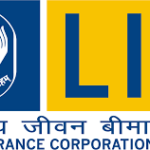Introduction: Setting the Stage for Success
Pre-university education is a crucial step in shaping a student’s future. This stage helps young minds prepare for the rigors of college and beyond. As the education landscape shifts, understanding various pathways can help students make a sound choice.
The Importance of Pre-University Education in Shaping Futures
The choices made in pre-university education often set the course for a student’s career and life. Quality education fosters critical thinking, helps build essential skills, and encourages personal growth. Students who engage in a solid pre-university program are more likely to succeed in higher education.
Global Trends in Pre-University Education
Education systems worldwide are adapting to meet changing needs. Many countries are embracing more flexible models allowing for personalized learning experiences. Global awareness, technology integration, and diverse curricula are becoming standard. Understanding these trends helps students prepare for an increasingly connected world.
A Glimpse into the Diverse Landscape of Pre-University Options
Several options exist including traditional high schools, online programs, and international curricula. Each offers unique advantages. Recognizing these differences can assist in choosing the right path.
Understanding Different Pre-University Pathways
Traditional High School Programs: Structure and Curriculum
Most students attend traditional high schools. These programs usually offer a standard curriculum covering subjects like math, science, and literature. Students earn diplomas, which are often required for college admission. Traditional schools also provide social interactions and extracurricular activities that can enhance learning.
International Baccalaureate (IB) Programs: A Global Perspective
The IB program is recognized internationally. It focuses on developing students’ critical thinking and global awareness. Offering rigorous courses, it prepares students for college through a comprehensive curriculum. Many universities value IB graduates for their preparedness and adaptability.
Advanced Placement (AP) Courses: College-Level Preparation
AP courses allow students to take college-level classes while still in high school. Successfully passing AP exams can earn credits at many colleges. This can save students both time and money in their future education. Taking AP courses demonstrates a strong commitment to learning.
Choosing the Right Pre-University Path: Factors to Consider
Academic Strengths and Interests: Identifying Your Niche
Understanding personal strengths is vital. Students should assess their interests and skills to choose a suitable pathway. A passion for science may lead to specialized programs, while a love for literature may open doors in humanities.
Career Aspirations and Future Goals: Aligning Education with Dreams
Aligning educational paths with career goals is critical. Students should think about what jobs they envision for themselves. Exploring careers can guide choices about courses and programs.
Support Systems and Resources: Finding the Right Environment
A supportive environment enhances learning. Students should seek schools with robust resources, supportive teachers, and student activities. Engaging with peers and mentors can make a significant difference.
Maximizing Your Pre-University Experience
Time Management and Organization: Effective Study Strategies
Managing time wisely is essential. Students should develop a study plan that includes breaks and leisure activities. Using planners or apps can help track assignments and deadlines.
Seeking Extracurricular Engagement: Broadening Horizons
Involvement in extracurricular activities enriches pre-university experiences. These activities can include clubs, sports, or volunteer work. Such engagements promote teamwork, leadership, and creativity, vital for college life.
Building Strong Relationships with Teachers and Mentors: Utilizing Support Networks
Establishing relationships with educators can be beneficial. Teachers often provide valuable insights and guidance. Mentors can help navigate educational challenges and career options.
The Role of Parents and Mentors in Pre-University Success
Parental Involvement and Support: A Collaborative Approach
Parents play a crucial role in their child’s education. Supporting homework, attending meetings, and encouraging exploration can make a big difference. Open communication fosters a healthy academic environment.
Mentorship Opportunities: Seeking Guidance from Experienced Individuals
Finding mentors can provide guidance. Experienced individuals can share knowledge and experiences that help students make informed decisions. Seeking out mentors who align with career interests can be especially beneficial.
Navigating Challenges: Building Resilience and Perseverance
Challenges are part of the educational journey. Cultivating resilience prepares students for future challenges. Encouragement from parents and mentors during tough times helps build this important trait.
Preparing for Post-Secondary Education
Standardized Testing Strategies: SAT, ACT, and Other Exams
Preparing for standardized tests is crucial. Students should familiarize themselves with test formats and practice regularly. Many resources are available, including prep courses, books, and online materials.
College Application Process: A Step-by-Step Guide
Navigating the college application process can be daunting. Students should start early, gathering necessary documents and requesting recommendation letters. Each submission should reflect their strengths and aspirations.
Financial Aid and Scholarships: Funding Your Education
Funding education is a major concern for many families. Students should actively seek scholarships and grants. Understanding financial aid options can help reduce the burden of tuition costs.
Conclusion: Embracing the Journey to Higher Education
Key Takeaways: Preparing for Success Beyond Pre-University
Pre-university education sets the stage for future success. By understanding different pathways, students can make informed choices about their education. Collaboration between students, parents, and mentors enhances this journey.
Future Outlook: The Ever-Evolving Landscape of Education
Education continues to change, adapting to new realities. Staying informed about trends can help students choose paths that align with their goals. As education evolves, so too do opportunities.
Call to Action: Start Planning Your Path Today
The journey to higher education begins now. Assess options, engage with mentors, and prepare for the next steps. Take charge of your educational path and embrace the opportunities ahead.






